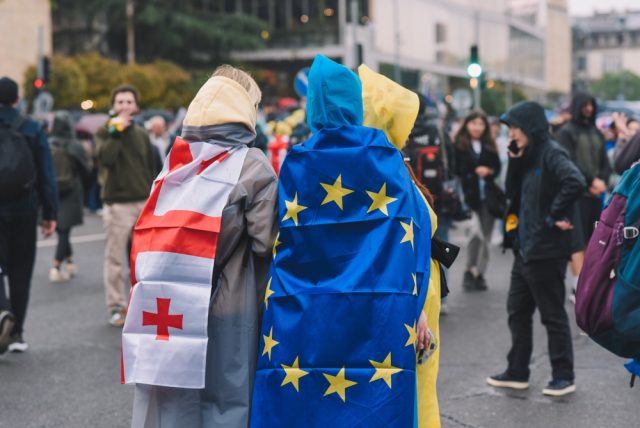
Between the European dream and Russian influence. Georgia winks at the European Union but must also reckon with the Kremlin, its past and present. Just months away from the elections to renew its parliament, the former Soviet republic, which gained independence in 1991, must choose sides. The situation in Tbilisi is delicate and the reason lies behind a proposed bill on transparency of foreign influence. While for the governing majority – represented by the Georgian Dreams party – the bill is necessary, for the President of the Republic, Salomé Zourabichvili, it is unconstitutional and contradicts European Union standards. That is why last May 18 pro-European Zourabichvili decided to veto its approval, knowing very well that her opinion would be circumvented by those who, with 84 out of 116 votes in favour, promoted what has been renamed the Foreign Agents Law. As was easy to predict, a parliamentary committee rejected the president’s refusal and referred the final decision to a vote of parliamentarians.
Introduced a year ago, the Law of Discord was brought back five months before the vote and, as per the design of Georgian Dreams – the political force founded by billionaire Bidzina Ivanishvili – provides that all institutions that receive more than 20 percent of their fundings from abroad would have to register as organizations pursuing the interests of a foreign power. A decree that in many respects resembles a Russian norm of 2022 and is expected to affect approximately 25,000 for-profit and nonprofit companies, considered media or free information and communication enterprises, nongovernmental organizations and nonprofit associations.
Tensions have moved from institutional halls to the streets. Protests by citizens supporting the state’s European course have been suppressed by police. Brussels is watching closely and so is Moscow, an interested observer. In the balance now is also the country’s status as a candidate to join the European Union.
In March 2022, within weeks of the invasion of Ukraine, the Georgian government – fearing a possible expansion of the conflict and Moscow’s hegemony – had applied to join the EU. In June 2023 came the opinions of the European commission and council, followed last December by the last step: the status of a candidate nation to enlarge the borders of the European Union. From Rue de la Loi, headquarters of the European Council, the conditions to be met to make the European dream a reality were sent to Tbilisi. To complete the process, Georgia must demonstrate that it shares the values of the Union, continue to make progress on its reform agenda and meet the demands specified in the Commission’s report. Rules inherent to public administration and public procurement, as well as economic strategies, ended up under Brussels’ magnifying glass. In addition, alignment with EU policies on restrictive measures against Russia and Belarus is still expected.
The Law of Discord threatens to bring everything into question. After the approval of the “foreign influence transparency” rule, the Union urged PM Irakli Kobakhidze and his government to withdraw the law, keeping their commitments to Brussels and the recognition of candidate country status. Josep Borrell, as EU High Representative for Foreign Affairs and Security Policy, expressly told the press that the 27 EU countries are considering adopting appropriate and adequate responses should Georgian Dreams fail to back down. To proceed, however, unity of purpose and a unanimous resolution will be required, which are not there at the moment. In fact, not all 27 agree that the pro-Russian-inspired law is a severe matter or endangers the founding values of the EU.
Meanwhile, the president of the Republic, Salomé Zourabichvili, has played her card. She has asked her country’s pro-European parties to adhere to the “Georgian Charter” policy document, a kind of manifesto in which are highlighted all the priorities outlined by the European Commission to complete the path undertaken in March two years ago. The document could be compared to a lightning rod and will be presented in Brussels in order to buy some time. Because on October 26, people will go to the polls for the renewal of the Parliament and the citizens might vote for the European Dream and against Georgian Dreams.



 Subscribe
Subscribe